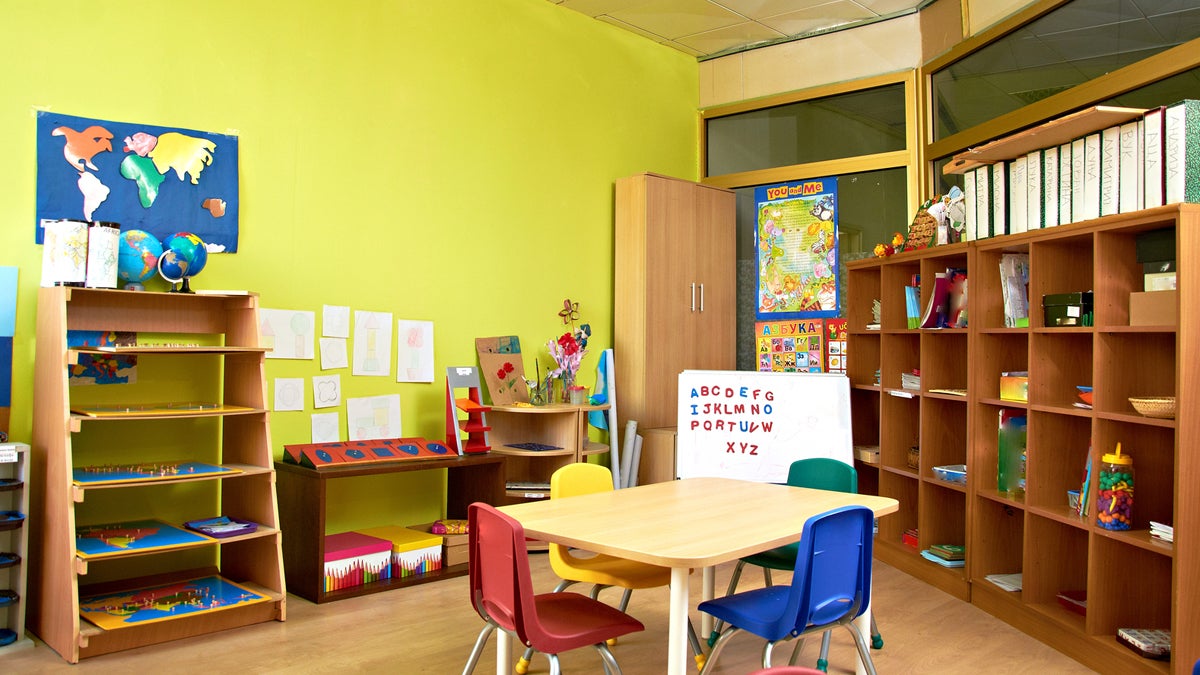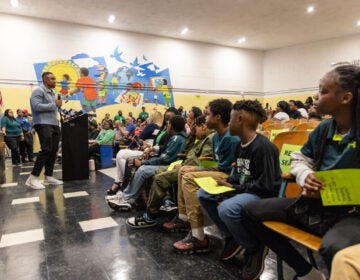A quick look at who applied for Philly’s pre-K money

(Marko Poplasen/ Bigstock)
The race for Philadelphia’s new flood of pre-K money is on.
The city announced earlier this week that 85 private child care providers have applied for a shot at the roughly $23 million Philadelphia will dole out during phase one of its pre-K expansion. By January, the city plans to have 2,000 new high-quality pre-K seats. At full implementation — five years from now — that number is expected to be 6,500.
It’s not known yet how many of these 85 applicants the city will select in its first go-round. Officials will say only that the city expects to have “dozens” of partners.
The 85 applicants, representing 168 sites, seek funding for more than 4,000 seats. The city, of course, can only support 2,000 new slots right now. The average provider, officials say, is asking for an expansion of just 30 slots.
That’s largely reflective of the approach Philadelphia has taken in its expansion efforts. Rather than work solely through the School District of Philadelphia — the city’s largest early childhood provider — the city is using a mixed delivery method that blends private and public centers. That means the school district — which submitted applications for 15 of its pre-K subcontractors — is competing against private pre-K chains such as Brightside Academy, as well as mom-and-pop operations. The fact that the average provider has asked for only 30 additional seats suggests some of those smaller providers have thrown their hats in the ring.
Also notable is that providers from all across the quality spectrum applied.
Counting the 15 public school subcontractors, 44 percent of applicants have a score from the state’s early childhood rating system that qualify them as “high quality.” The remaining 56 percent fall below that threshold. The city considers centers with a STAR 3 or STAR 4 rating to be high quality.
Here’s the quality breakdown provided by the city:
STAR 4 — 26 applicants
STAR 3 — 18 applicants
STAR 2 — 29 applicants
STAR 1 — 19 applicants
UNRATED — 8 applicants
The city’s application process is divided into two pools. In the first pool are STAR 3 and STAR 4 providers. Those centers are already considered quality and are simply looking to expand. The rest of the centers can apply for a provisional contract. The hope is that an infusion of money and support from the city will help these providers climb the rating system to the point that they’re considered high quality.
In such cases the city won’t actually be creating new seats, it will simply be converting low-quality slots into high-quality ones. There is one caveat. STAR 2 centers — those on the verge of becoming high-quality — can simultaneously receive money for expansion and money to help them move up the rating system. Early childhood research suggests that the societal benefits of public pre-K take effect only if students are in high-quality centers.
Finally, the data provided by city officials shows applicants from all across the city. More than 40 ZIP codes are represented in this initial cohort of 85 providers. More than two-thirds of the centers are located in neighborhoods where the city says high-quality pre-K is in shortest supply. Still missing is a full picture of which neighborhoods have the highest cluster of applicants and which neighborhoods didn’t participate.
It’s not clear how many providers didn’t complete the application, which was long and intensive. The city says about 400 people showed up at the mandatory info sessions it held for people interested in applying for pre-K money. Of course some of those 400 could have been from the same center or organization.
The money needed to support this expansion comes through the city’s new tax on sweetened beverages. Mayor Jim Kenney sold this breakthrough piece of legislation by hammering again and again on how the money would be used. Expanded pre-K was the centerpiece of that pitch.
Now that the rollout process is reaching full steam, it will become apparent whether the results are as rosy as the promise. The city has 30 volunteers combing through its first batch of applications. The first round of winners, officials said, will be announced in early October.
WHYY is your source for fact-based, in-depth journalism and information. As a nonprofit organization, we rely on financial support from readers like you. Please give today.





